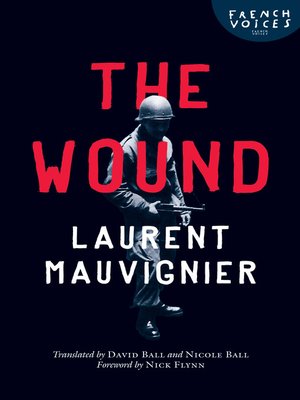
Sign up to save your library
With an OverDrive account, you can save your favorite libraries for at-a-glance information about availability. Find out more about OverDrive accounts.
Find this title in Libby, the library reading app by OverDrive.



Search for a digital library with this title
Title found at these libraries:
| Library Name | Distance |
|---|---|
| Loading... |
"Where is your wound?" asks Jean Genet in the lines Laurent Mauvignier uses as an epigraph to The Wound. By the time we have finished this four-part novel, we realize that for many the wound lies four decades back in "the Events" that people have tried to not talk about ever since: the Algerian War.
Chronicling the lives of two cousins—Bernard and Rabut—both in the present and at the time of the Algerian War of Independence in the 1960s, we get a full picture of the lasting effects this event had on the men who were involved. Through the fragments of their stories we see the whole history of the war: its atrocities, its horrors, and its hatreds. Mauvignier shows readers how the Algerian War, always present yet always repressed, has sickened the emotional and moral life of everyone it touched—and France itself, perhaps. The epigraph, like the novel, suggests that wounded men may even become the wound itself.
Chronicling the lives of two cousins—Bernard and Rabut—both in the present and at the time of the Algerian War of Independence in the 1960s, we get a full picture of the lasting effects this event had on the men who were involved. Through the fragments of their stories we see the whole history of the war: its atrocities, its horrors, and its hatreds. Mauvignier shows readers how the Algerian War, always present yet always repressed, has sickened the emotional and moral life of everyone it touched—and France itself, perhaps. The epigraph, like the novel, suggests that wounded men may even become the wound itself.







